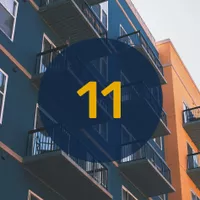Barend se woonstel is te klein.
Brad's apartment is too small.
Hy wil na ‘n nuwe woonstel toe trek.
He wants to move to a new apartment.
Hy kyk na foto's van woonstelle op die internet.
He looks at pictures of apartments on the internet.
Een woonstel is baie goedkoop.
One apartment is very cheap.
Maar dit is oud en leeg.
Aber es ist alt und leer.
But it is old and empty.
‘n Ander woonstel het meubels.
Another apartment has furniture.
Dit het ‘n bed, ‘n TV en ‘n stoof.
It has a bed, a TV, and a stove.
Daardie woonstel is egter te duur.
Allerdings ist diese Wohnung zu teuer.
That apartment is expensive, though.
Barend besluit om meer geld te spaar.
Barend beschließt, mehr Geld zu sparen.
Brad decides to save more money.
Dan kan hy volgende jaar trek.
Dann kann er nächstes Jahr umziehen.
Then, he can move next year.
Hier is dieselfde storie, op ‘n ander manier vertel.
Here is the same story told in a different way.
My woonstel is te klein.
My apartment is too small.
Ek wil na ‘n nuwe woonstel toe trek.
I want to move to a new apartment.
Ek kyk na foto's van woonstelle op die internet.
I look at pictures of apartments on the internet.
Een woonstel is baie goedkoop.
One apartment is very cheap.
Maar dit is oud en leeg.
But it is old and empty.
‘n Ander woonstel het meubels.
Another apartment has furniture.
Dit het ‘n bed, ‘n TV en ‘n stoof.
It has a bed, a TV, and a stove.
Daardie woonstel is egter te duur.
That apartment is expensive, though.
Ek besluit om meer geld te spaar.
I decide to save more money.
Dan kan ek volgende jaar trek.
Then, I can move next year.
Vrae:
Questions:
Een: Barend se woonstel is te klein.
One: Brad's apartment is too small.
Is Barend se woonstel groot?
Is Brad's apartment big?
Nee, sy woonstel is nie groot nie, dit is te klein.
No, his apartment is not big, It is too small.
Twee: Barend wil na ‘n nuwe woonstel toe trek.
Two: Brad wants to move to a new apartment.
Wil Barend trek?
Does Brad want to move?
Ja, Barend wil na ‘n nuwe woonstel toe trek.
Yes, Brad wants to move to a new apartment.
Drie: Barend kyk na foto's van woonstelle op die internet.
Three: Brad looks at pictures of apartments on the internet.
Kyk Barend na foto's op die internet?
Does Brad look at pictures on the internet?
Ja, Barend kyk na foto's van woonstelle op die internet.
Yes, Brad looks at pictures of apartments on the internet.
Vier: Die eerste woonstel is goedkoop.
Four: The first apartment is cheap.
Is die eerste woonstel duur?
Is the first apartment expensive?
Nee, die eerste woonstel is nie duur nie.
No, the first apartment is not expensive.
Dit is goedkoop.
It is cheap.
Vyf: Die eerste woonstel is oud en leeg.
Five: The first apartment is old and empty.
Is die eerste woonstel oud?
Is the first apartment old?
Ja, die eerste woonstel is oud en leeg.
Yes, the first apartment is old and empty.
Ses: Die ander woonstel het ‘n bed, ‘n TV, en ‘n stoof.
Six: The other apartment has a bed, a TV, and a stove.
Het die ander woonstel meubels?
Does the other apartment have furniture?
Ja, die ander woonstel het ‘n bed, ‘n TV, en ‘n stoof.
Yes, the other apartment has a bed, a TV, and a stove.
Sewe: Die ander woonstel is duur.
Seven: The other apartment is expensive.
Is die ander woonstel goedkoop?
Is the other apartment cheap?
Nee, die ander woonstel is nie goedkoop nie, dit is duur.
No, the other apartment is not cheap, it is expensive.
Agt: Barend besluit om meer geld te spaar.
Eight: Brad decides to save more money.
Wil Barend meer geld spaar?
Does Brad want to save more money?
Ja, Barend besluit om meer geld te spaar.
Yes, Brad decides to save more money.
Nege: Barend kan volgende jaar trek.
Nine: Brad can move next year.
Kan Barend hierdie jaar trek?
Can Brad move this year?
Nee, Barend kan nie hierdie jaar trek nie.
No, Brad can't move this year.
Hy kan volgende jaar trek.
He can move next year.

